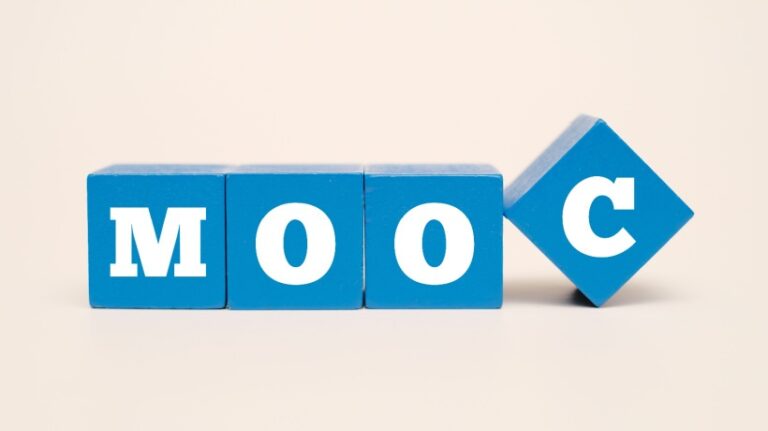
Are MOOCs the perfect learning solution?
Massive open online courses (MOOCs) are revolutionizing learning by providing affordable and flexible access to top-notch education. Their global reach allows for the acquisition of skills at scale, making them ideal for self-directed learners. However, low completion rates and limited personal interaction can hinder engagement. A great tip is to combine MOOCs with study groups or mentorship to maximize learning outcomes and stay motivated throughout the course.
Massive open online courses have revolutionized education by making learning accessible, affordable, and flexible for millions of people around the world. These platforms leverage technology to bridge the gaps in traditional education and democratize knowledge on an unprecedented scale. However, while MOOCs offer unique benefits, they also come with challenges that impact their effectiveness. Here, we dig into the pros and cons of MOOCs and share practical insights to maximize their potential.
Benefits of MOOCs for learning
1. Accessibility and inclusion
One of the most important benefits of MOOCs is accessibility. Geographical barriers are removed, allowing learners from diverse backgrounds to access quality education from prestigious institutions. Students living in remote villages can enroll in courses taught by professors from Harvard, MIT, or Stanford University without having to relocate or pay exorbitant tuition fees.
2. Cost-effectiveness
MOOCs are often free or available at a fraction of the cost of traditional education. This affordability opens the door to individuals who cannot afford formal education. Even the paid version with certifications is affordable, so even people on a budget can improve their skills.
3. Flexibility and convenience
Unlike traditional classrooms, MOOCs allow learners to learn at their own pace. The lack of a rigid schedule allows individuals to balance education with work, family, and other commitments. This flexibility is especially valuable for working professionals looking to upskill without sacrificing their careers.
4. Abundant courses
MOOCs cover a wide range of subjects, from coding and business management to art and philosophy. Learners can explore niches or specialize in their field without being limited by the curriculum offered by their institution. This diversity fosters continuous learning and intellectual curiosity.
5. Networking opportunities
MOOCs connect learners around the world and foster a global learning community. Interactive forums, discussion boards, and peer-reviewed assignments allow participants to exchange ideas, expand their horizons, and build professional connections.
6. Immediate skill application
Many MOOCs are designed to address current industry needs and are highly relevant for professional development. Courses often include practical projects and case studies, allowing learners to immediately apply new skills to real-world scenarios.
Disadvantages of MOOC
1. Lack of personal interaction
MOOCs connect learners virtually, but often lack the personalized interaction of a traditional classroom. Students may miss out on one-on-one instruction from instructors and face-to-face collaboration with peers, which can impact the depth of understanding.
2. Low completion rate
Statistics show that MOOC completion rates are low, with only 10-15% of enrolled participants completing the course. Factors such as lack of motivation, distractions, or unclear goals often lead to dropout.
3. Limited work experience
Although MOOCs incorporate projects, their hands-on experience may not match the rigor of in-person training or internships. For fields that require laboratory work, field experience, or the use of real equipment, MOOCs may not be sufficient.
4. Reliability concerns
Not all MOOCs are created equal, and you may question the credibility of a particular platform or course. Employers don’t necessarily value MOOC certifications as highly as degrees from traditional institutions.
5. Self-discipline required
MOOCs require a high level of initiative and discipline. Without a structured environment, many learners struggle to stay on track, especially when juggling multiple responsibilities.
6. Language and technology barriers
MOOCs aim to be inclusive, but language limitations and the need for reliable internet access can create barriers for learners in non-English speaking and underserved areas .
Tips for maximizing the benefits of MOOCs
Set clear goals
Define what you want to achieve before registering. Whether it’s getting a qualification, learning a new skill, or exploring your interests, having clear goals will help you stay focused. make a study schedule
Treat MOOCs like traditional classes. Dedicate a specific amount of time each week to studying and stick to a schedule to ensure steady progress. be actively involved
Participate in discussion forums and group activities to deepen your understanding and build connections. Asking questions and sharing insights enriches the learning experience. Choose a reputable platform
Choose courses from well-known providers to ensure high-quality content and recognized certifications. Check reviews and ratings before registering. Combine MOOCs with practical experience
Supplement your online learning with real-world applications. If you’re learning to code, build a project. For business courses, apply the concepts at work. This integration enhances learning. Take advantage of additional resources
Use textbooks, research papers, or YouTube tutorials to deepen your understanding of course content. A multifaceted approach to learning increases retention. Find an accountability partner
Join a study group or find a study partner to stay motivated. Having someone to share your progress with will help you stay focused on completing the course.
The future of MOOCs in learning
As technology evolves, MOOCs are becoming more immersive and interactive. Features such as gamification, artificial intelligence, and virtual reality are improving the learning experience. The platform also offers stackable credentials, allowing learners to combine multiple courses to earn a certification.
conclusion
MOOCs are revolutionizing the way we learn, offering unparalleled opportunities for skill development and personal growth. Despite challenges such as low completion rates and limited interactions, adopting effective strategies can help learners reach their full potential. As education continues to evolve, MOOCs are poised to remain an important tool in promoting lifelong learning and global accessibility.


